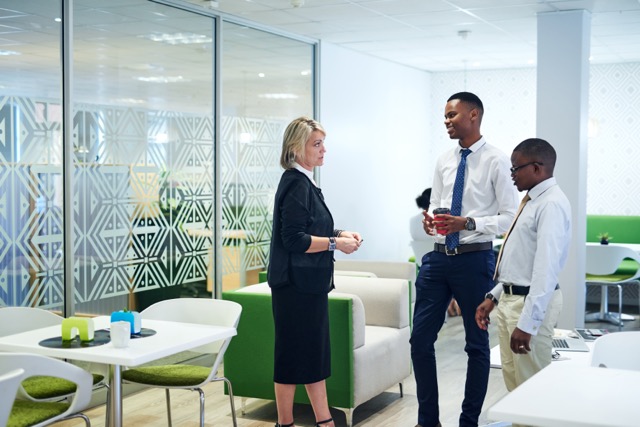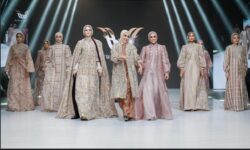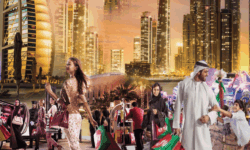
In a region once synonymous with relentless hustle and high-octane business ambition, the UAE is quietly undergoing a lifestyle transformation. From multinational executives in Dubai’s towering skyline to young Emiratis in Sharjah launching creative startups, a new conversation is emerging around a timeless ideal—balance. With government reforms, evolving workplace culture, and shifting societal priorities, UAE residents are rewriting the rulebook on how life and work should coexist.
The Catalyst: Government Reforms Changing the Rhythm of Life
One of the most significant shifts came with the UAE government’s decision in early 2022 to adopt a 4.5-day workweek for federal employees. The transition from a Sunday–Thursday model to a Monday–Friday schedule aligned the UAE with global markets while also giving citizens and residents more personal time, particularly over the weekend.
This change was more than symbolic. Schools, private companies, and even financial institutions followed suit. According to a 2024 survey by PwC Middle East, 67% of UAE employees reported greater satisfaction with their weekly routines post-reform.
“The half-day Friday has become a mental breather,” says Lina Al Hamadi, a HR executive based in Abu Dhabi. “It’s encouraged us to approach weekends not just for errands, but for real rest and personal projects.”
Tech-Enabled Flexibility: Remote Work and Hybrid Models Gain Momentum
While the global pandemic catalyzed remote work worldwide, the UAE has embraced hybrid and remote models with surprising agility, especially in sectors like fintech, media, and consulting. In Dubai Internet City and Abu Dhabi Global Market, co-working spaces now brim with professionals blending office hours with personal productivity.
Digital infrastructure has helped tremendously. The UAE ranked 1st in the Arab world for network readiness in 2023, according to the Portulans Institute. With fast internet, widespread digital tools, and cloud services, many companies now offer flex-time policies and work-from-anywhere benefits.
“I now work three days a week from Ras Al Khaimah and spend the rest near my family in Al Ain,” shares Muhammad Jibran, a UX designer. “It’s the best of both worlds—I earn well in the city but live grounded in tradition.”
The Role of Corporate Wellness Programs
Beyond just schedules, many UAE-based firms are investing in employee well-being as a productivity strategy. Leading companies have introduced wellness platforms, mental health counseling, in-office yoga, and even “digital detox” hours. Emirates Group, for example, expanded its employee assistance program to include 24/7 mental health support and mindfulness coaching.
The cultural shift is evident: burnout, once worn as a badge of honor, is increasingly viewed as a red flag. Human capital leaders are actively linking balanced lifestyles with retention, engagement, and innovation.
“We’re no longer asking how much someone can do, but how sustainably they can do it,” says Sana D., wellness coordinator at a multinational in Dubai Media City.
Leisure and Family Time Take Center Stage
With more flexible schedules, family bonding and personal hobbies are making a strong comeback. Weekends now often feature morning beach runs, brunches at The Pointe, and cultural outings to the Louvre Abu Dhabi or Alserkal Avenue.
Emirati families, in particular, are returning to majlis traditions, community gatherings, and even reviving falconry and desert camping as ways to reconnect. Many expats are embracing this shift too, exploring destinations like Fujairah for coastal retreats or Al Ain for mountain hikes.
Even retail and F&B sectors are responding. Wellness cafes, reading lounges, and art pop-ups have mushroomed across the Emirates, signaling a new appetite for slow, meaningful living.
Women at the Forefront of the Balance Movement
UAE’s ambitious gender parity agenda has seen a growing number of women in leadership—and they’re also pioneering new definitions of professional fulfillment. Whether it’s female entrepreneurs launching online stores from home or senior managers working staggered shifts to accommodate parenting, UAE women are shaping flexible work narratives.
The Gender Balance Council and other federal initiatives have helped normalize maternity benefits, equal pay policies, and hybrid roles for women across sectors.
“For me, success is not about staying in the office till 10 PM. It’s about impact—with time for my kids and myself,” says Fatima Khalil, a financial strategist based in Dubai.
Wellness Tourism and Mental Health Awareness on the Rise
Lifestyle changes are not confined to workplaces. The UAE’s wellness tourism market is booming, with resorts offering silent retreats, spa vacations, and digital detox programs in Ras Al Khaimah, Hatta, and even the Liwa Desert.
Meanwhile, mental health, once a taboo subject, is now openly discussed. The Ministry of Health and Prevention (MoHAP) launched national campaigns promoting therapy and emotional intelligence, especially targeting youth and professionals.
Digital apps like MindTales and Takalam have gained popularity among users seeking counseling, mindfulness exercises, and emotional tracking tools.
A Balancing Act with Global Lessons
While work-life balance remains a global challenge, the UAE’s journey offers an innovative, cross-cultural model. Here, balance is not about doing less, but doing things more intentionally. It’s about blending ambition with awareness, speed with stillness.
In a society as dynamic as the UAE—home to over 200 nationalities and ambitious growth targets—this evolution is not without its growing pains. Yet, the direction is clear: well-being is no longer an afterthought; it’s becoming a national priority.
Final Thoughts
The UAE’s reimagining of work-life balance is a testament to its adaptability and forward-thinking leadership. As policy, technology, and societal values converge, residents are embracing a new norm—one that prioritizes not just success, but sustainability, satisfaction, and sanity.
In a land once defined by skyscrapers and superlatives, a quieter revolution is underway—where well-being is becoming the new measure of wealth.







